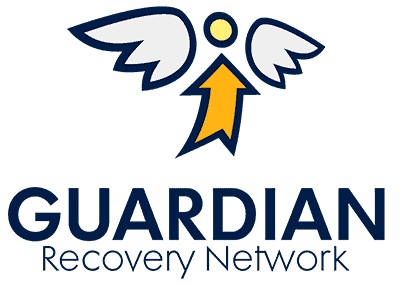Addiction Treatment Methods
Recreational Therapy
Addiction treatment is about much more than just learning how to survive addiction and stay sober. At Guardian Recovery we believe that addiction treatment should also teach clients how to build fulfilling, fun and happy sober lives. This is why we offer recreational therapy as part of our comprehensive program of clinical care.
What is recreational therapy? According to the National Council, recreational therapy is a technique that utilizes activity-based interventions to address the unique needs of individuals struggling with behavioral issues like substance abuse and dependence. The purpose of this process is to comprehensively improve all areas of life including social functioning, cognitive functioning, physical functioning and emotional functioning.
Addiction recovery is a process that requires the development of meaningful and mutually beneficial friendships. Before coming to us, many of our clients believe in self-sufficiency. They have a difficult time reaching out for help when it is needed, which often hinders their progress in recovery. By engaging in activities together, clients learn to communicate effectively while forming bonds that might last a lifetime. For more information on recreational therapy or our comprehensive recovery programs, contact us today.
Recreational Therapy During
Residential Inpatient Treatment
Recreational Therapy is most prominent in residential inpatient treatment. According to an article published by the Journal of Substance Abuse Treatment, recreational therapy activities — including physical activities like walking, participating in games and sports, weight training, aerobics and group hikes — are an important part of inpatient substance abuse treatment.

Recreational Activities at The Plymouth House
- Group Hikes – The scenic landscape in New Hampshire lends itself to a range of outdoor activities. Group hikes are included in most weekly schedules and clients are highly encouraged to participate whenever they are able to.
- Group Sports – The Plymouth House campus is expansive and there is plenty of room to participate in group sports and other outdoor, recreational activities, including basketball and horseshoes. The Plymouth House campus has basketball courts and horseshoe pits where clients are encouraged to play during their downtime. Playing on a team with other guests encourages healthy communication and the development of problem solving skills. Guests work together to achieve a common goal much like they would in their personal programs of recovery.
- Yoga – The Plymouth House has a dedicated yoga studio on site where guests are able to participate in scheduled and professionally facilitated yoga classes.
Recreational Activities at Immersion Recovery Center
- Trips To the Beach – The Immersion facility is located just minutes from the beautiful, serene beaches of South Florida. As part of our inpatient residential treatment program we sometimes transport our clients to and from the beach on the weekends so that they are able to enjoy the breathtaking scenery.
- Group Outings – For example, we might take our clients out bowling or take them on a kayaking or stand-up paddle boarding trip. Again, one of our priorities is teaching clients how to have fun in sobriety. The fear of leading a boring life in sobriety is eliminated while clients continue to form meaningful bonds with one another.
Recreational Therapy at Other Levels of Care
The type of activities we incorporate into our recreational therapy programs depend heavily on where the facility is located and the level of care. For example, recreational activities that might be available to clients who are in medical detox include yoga, meditation, crafts and games (activities that don’t involve leaving the facility). In our Intensive Outpatient (IOP) programs we do not necessarily arrange recreational activities for our clients because they have more personal freedom and free time. Instead, they are highly encouraged to socialize with the group outside of IOP hours and partake in recreational activities of their own choosing. This social bonds formed within the IOP group are very important. Groups get very close, and the friendships that are bolstered while clients are in treatment often last for years after treatment concludes.
The Importance of Health & Wellness
Addiction is a complicated disease in the sense that it has the power to destroy physical, mental, emotional and spiritual well-being. Engaging in recreational activities does much more than encourage clients to interact with one another in healthy and productive ways. Recreational therapy helps clients build self-esteem and return to a state of healthy physical functioning. Physical activities are also good for mental health. The more well-rounded a recovery program is, the better chance a client has at staying sober long-term.
Additional benefits of recreational therapy:
- Recreational activities help provide structure – It is important for men and women who are in early recovery to have structured days and very little idle time. It is often beneficial for clients to continue participating in a group activity once treatment concludes. For example, they might sign up for a membership at a yoga studio or at a local gym. They might join a sports team or commit to taking a jog every morning. We help our clients figure out what it is they like to do and go from there.
- Participating in recreational activities helps build self-esteem and helps clients develop a sense of self-worth – As they begin to recognize their own personal strengths, clients learn they are capable of doing much more than they previously thought. For example, a client who previously experienced a fear of the water might be encouraged to participate in recreational therapy involving kayaking or swimming. The client begins to recognize that overcoming personal obstacles is entirely possible, and it is possible to accomplish much more with a clear head.
- Engaging in recreational activities and daily exercise helps heal the body and the brain – Active addiction does quite a number on physical and mental health. Most clients who enter into recovery are malnourished, nutrient-deficient and have been suffering from symptoms of mental illness (which either preceded the substance abuse disorder or resulted from prolonged exposure to chemical substances). According to an article published by the U.S. National Library of Medicine, frequent exercise improves mental health by regulating mood, improving self-esteem, reducing anxiety and depression and improving cognitive functioning.
Healing the Whole Person
Recreational therapy is just one of the numerous therapeutic services we provide. We believe in a comprehensive, whole person approach to recovery. This means tackling the physical, mental, emotional and spiritual consequences of addiction while equipping our clients with the life skills, tools and coping mechanisms they need to stand on their own two feet. To learn more about Guardian Recovery and the levels of addiction treatment we offer, contact us today.
Get Started Now
Give us a call 24/7


